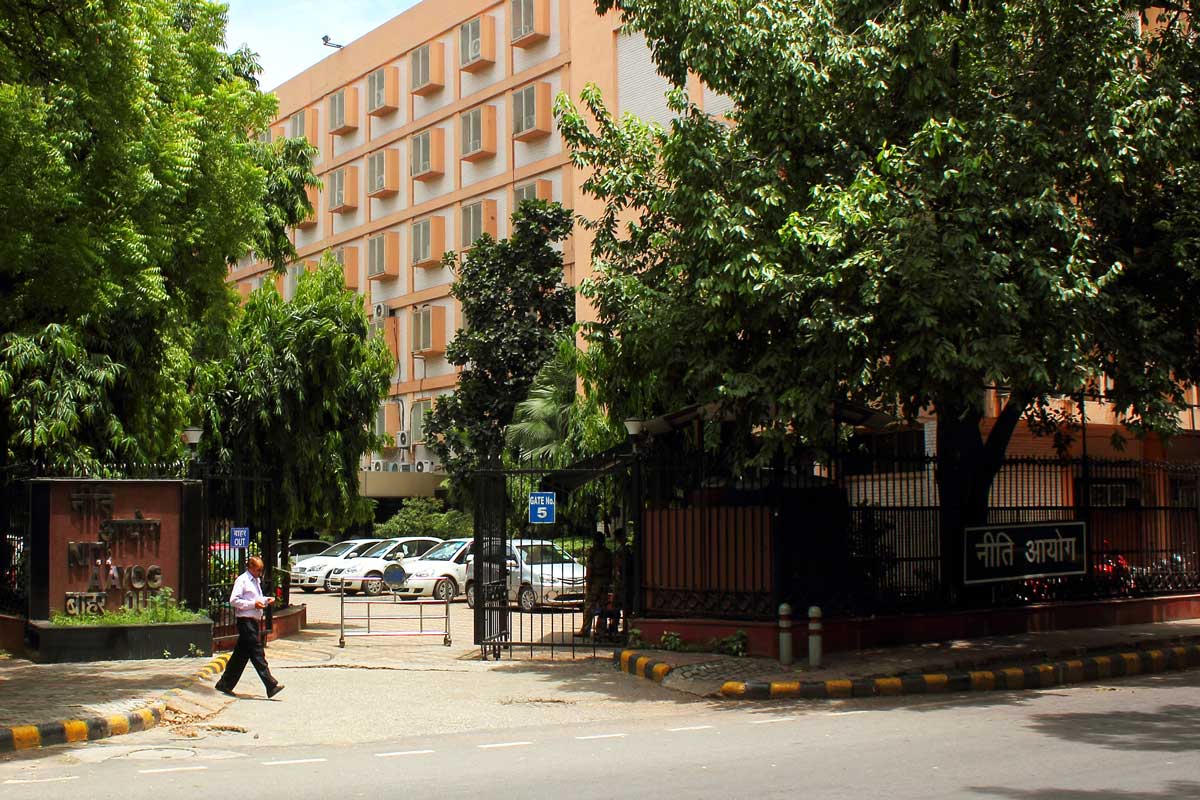Boon or Bane?
After the disastrous electoral consequences of Sanjay Gandhi’s infamous population control experiments of the Emergency era, all Governments fought shy of taking any measures for controlling our burgeoning population.
“It has become tendency of every sector to ask for lower GST. I feel GST issues are much larger than asking for rates,” Chand said.

NITI Aayog - National Institution for Transforming India building popularly knows as Policy Commission of India, in New Delhi, India. (Photo: iStock)
Government think-tank Niti Aayog member Ramesh Chand on Wednesday proposed to have only two slabs under the goods and service tax (GST) regime as against the multiple slabs, he also thinks that rates should be revised annually if required.
The GST, which replaced almost all the indirect taxes, came into effect from July 1, 2017, and since then the rates on goods and services have been revised very often.
Advertisement
Currently, there are four GST rate slabs -5 per cent, 12, per cent, 18 per cent and 28 per cent.
Advertisement
As per a PTI report, Chand said that when a large taxation reforms like GST are brought in, there are always “teething problems” but soon they stabilise. He said most of the countries took long time for GST stabilisation.
The Niti Aayog member is also strictly against frequent changes in GST rates as it leads to problems. Besides frequent demand for reduction in the rates on various goods and services, there has also been clamour for a slash in the number of tax slabs.
“It has become tendency of every sector to ask for lower GST. I feel GST issues are much larger than asking for rates,” Chand said.
And, “we should not fiddle with rates or change rates frequently… We should not have many rates. Have only two rates,” he added.
Chand said the focus should be on steady increase in revenue collection from the new indirect tax regime rather than tinkering with rates. He prescribed that if at all rates need to be changed, it should be done annually.
He further said that the 5 per cent GST on process food, like dairy products is “very very reasonable” and it need not be decreased.
Chand said that governments need revenue to spend on development works, therefore, their demands to lower rates is difficult to fulfil.
“We always ask the government and forget to give back. This trend is not good. From where will the government get the money to spend for development,” said Chand, who is also a member of the 15th Finance Commission.
(With input from agencies)
Advertisement